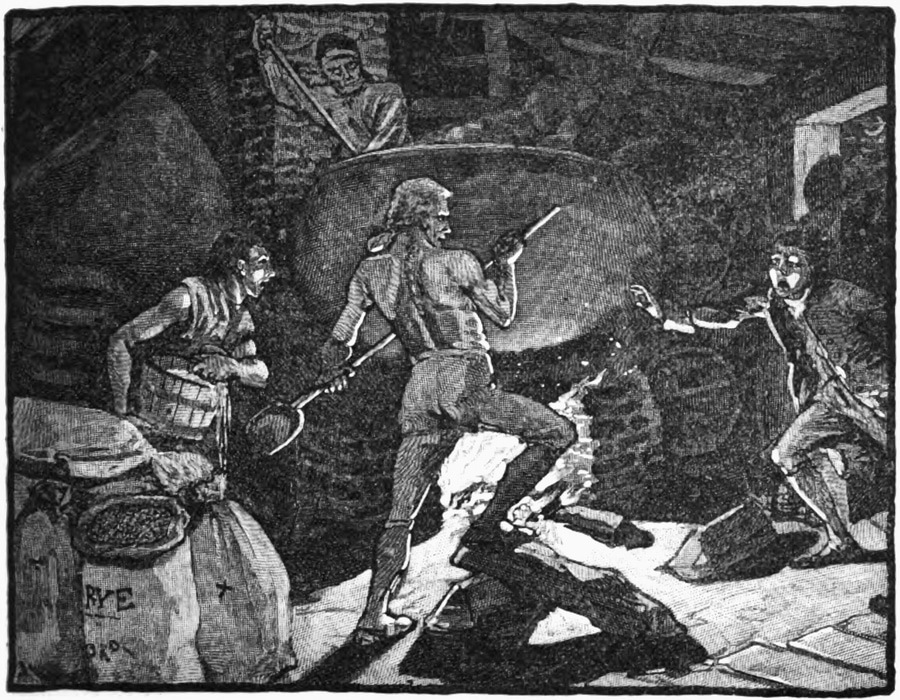The Situation: Jack Smith Throws in the Towel
-(1).jpeg?sfvrsn=143eb65_5)
Published by The Lawfare Institute
in Cooperation With

The Situation last week bid farewell to Matt Gaetz.
Today, it bids farewell to accountability for Donald J. Trump.
In a brief filing in the Jan. 6 case in federal court in Washington, D.C., this morning, Special Counsel Jack Smith put it plainly:
As a result of the election held on November 5, 2024, the defendant, Donald J. Trump, will be inaugurated as President on January 20, 2025. It has long been the position of the Department of Justice that the United States Constitution forbids the federal indictment and subsequent criminal prosecution of a sitting President. But the Department and the country have never faced the circumstance here, where a federal indictment against a private citizen has been returned by a grand jury and a criminal prosecution is already underway when the defendant is elected President. Confronted with this unprecedented situation, the Special Counsel’s Office consulted with the Department’s Office of Legal Counsel (OLC), whose interpretation of constitutional questions such as those raised here is binding on Department prosecutors. After careful consideration, the Department has determined that OLC’s prior opinions concerning the Constitution’s prohibition on federal indictment and prosecution of a sitting President apply to this situation and that as a result this prosecution must be dismissed before the defendant is inaugurated.
So it’s over.
The long saga—which began with the FBI trying to figure out whether Russia had managed to penetrate the 2016 Trump campaign, continued through Robert Mueller’s investigations of collusion and obstruction, morphed into the first impeachment, which careened into the second impeachment with barely a pause for a pandemic, and then renewed its life as a spree of investigations by the Justice Department and by district attorneys in New York and Georgia—is now finally done.
Yes, I know, it’s not technically done, though Judge Tanya Chutkan dismissed the case this afternoon. The classified documents case, currently on appeal to the U.S. Court of Appeals for the Eleventh Circuit, requires a separate wind-down, as do the state cases. And technically, at least, this case could be refiled after Trump leaves office.
But let’s be real: It’s over. If you have to say the words “equitable tolling” in describing a vision of presidential accountability, you’re not really talking about presidential accountability. You’re talking about a fantasy. You’re lighting votive candles with pictures of prosecutors.
Smith’s filing is written in spare prose, stripped quite bare of rhetorical flourishes, yet it contains some extraordinary language. The people elected as president a man under federal criminal indictment, the above-quoted language states, and there is simply no way to reconcile the continuation of that prosecution when he takes the oath of office with the Justice Department’s historic view that the president cannot be prosecuted while in office. So the case must go.
It’s not, understand, that the government no longer stands by its case. Smith goes out of his way to note that the prohibition against prosecuting a sitting president ”is categorical and does not turn on the gravity of the crimes charged, the strength of the Government’s proof, or the merits of the prosecution, which the Government stands fully behind.” He later adds that “[t]he Government’s position on the merits of the defendant’s prosecution has not changed.“
Consider these words for a moment. In just under two months, a man will take the oath of office as president of the United States—a man whom the Justice Department argued only today has committed grave crimes for which the evidence is strong and prosecution merited. And he will do so with that same Justice Department having released him from criminal prosecution not because he’s innocent, not because new evidence has arisen, and not because we have repealed any of the laws in question. He will do so because, and only because, the electorate chose him to be president notwithstanding the indictment, and in a democratic republic, the electorate’s choice must reign supreme even over the criminal law.
I don’t quarrel with any of this, at least not intellectually. If you had asked me a year ago what would happen if Trump won the presidency while his criminal cases were still pending, and people did ask me that, I would have argued—indeed, I did argue—that this is what would and should happen:
Yet I would be lying if I satisfied myself now with some banality like “in a democracy, the people are sovereign” or “the people are entitled to elect a criminal.” Of course they are, and of course they are.
And Samuel Moyn, writing in the New York Times the other day, is correct when he says that “many liberals, convinced that their causes were righteous, didn’t register the risks of this legalistic strategy, which included being seen by voters as treating the law as politics by other means.”
But speaking as one of those whom Moyn calls out by name in his essay, I want to say a word in defense of those of us who chose to take seriously the work of the Jan. 6 committee, the Office of the Special Counsel, and the state prosecutors of Fulton County and Manhattan, those of us who watched the trial in New York City firsthand, and those of us who believed all this had something to do with protecting democracy.
No, it’s not a particularly strident defense. As I mentioned the other day, I feel like something of a fool for believing in this process, and I certainly promise never again to invest my hopes in the criminal justice system—at least not for anything more elevated than locking up routine offenders for often excessively long periods of time.
But I do want to insist that we lose something when we propose, as Moyn does, to give up on the idea that we should prosecute a former president for conduct that certainly would prompt prosecution of a lesser figure because we aim to defeat him instead in the political arena. We lose something when we accept that Trump can’t be impeached and convicted because prosecution is available but also can’t be prosecuted, and can thus only be defeated by the means we would defeat, say, Barack Obama or George W. Bush or Teddy Roosevelt. I do want to insist that we lose something when we accept that Nixon was a chump for not firing Leon Jaworski, as well as Archibald Cox, and that he was a fool for thinking he needed the pardon from Gerald Ford at all—both of which facts the last four years have proven pretty conclusively. And I want to insist as well that we lose something when we suggest not merely that this case has to be dropped, as Smith’s filing acknowledges, but that it shouldn’t ever have been filed.
I just can’t go that far. Because once you do, you’re really saying that the criminal justice system has authority only over those without power. And while that might be, in fact, true, it’s not a reality I choose to accept.


.jpg?sfvrsn=8253205e_5)


